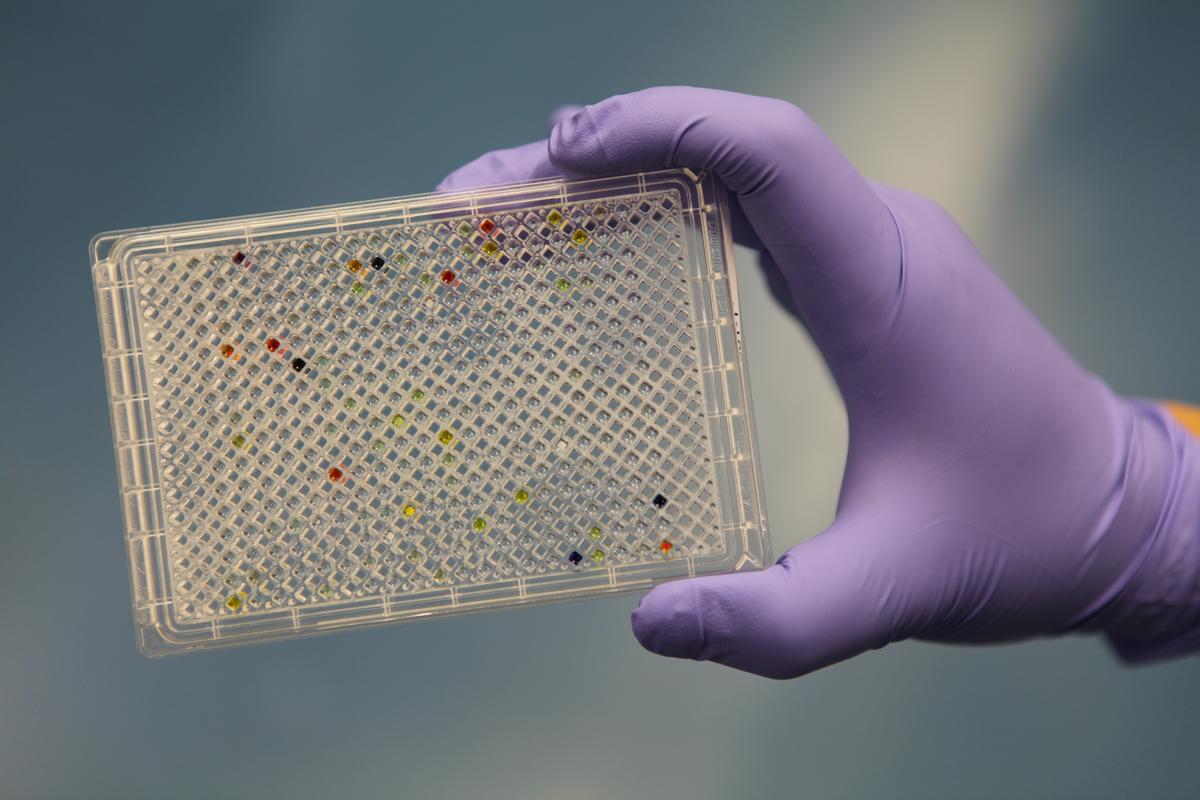Small molecule screening center opens at Princeton

A new center for small-molecule screening has opened on the Princeton campus. The facility offers researchers the ability to rapidly test large numbers of molecules and identify ones that may have therapeutic potential or aid in biomedical research.
The screening of small molecules has become an essential step in basic research and drug discovery. Yet until now, Princeton researchers lacked an on-campus infrastructure with the equipment and expertise to make large-scale screening available to all research teams that require it.
Housed in the Frick Chemistry Laboratory, the Small Molecule Screening Center is home to unique “libraries” of molecules and state-of-the-art equipment. These libraries are superior to the typical collections accessible to academic researchers because they encompass a variety of chemical and physical characteristics while possessing the properties desirable for maximum biological activity.
“We are very excited about the benefits for basic research,” said David MacMillan, the James S. McDonnell Distinguished University Professor of Chemistry and chair of the department. “The screening center will allow bioscience researchers to search for molecules that either interrupt or amplify the function of a biological mechanism, such as a disease pathway.”
For example, if a researcher is studying the biological steps of a pathway that leads to tumor growth, each molecule in the library could be tested to see if it blocked the pathway, sort of like trying millions of keys in a lock to see which one will open a door. With automated methods, this can be done extremely rapidly with accuracy and precision.
In addition to providing equipment and the molecules themselves, the screening center offers training for graduate students and postdoctoral research associates on how to use the equipment and process the resulting data. Screening center personnel also are available to provide assistance in identifying lead compounds that could enable the development of therapeutics or further studies of a biological system. Funding for the center comes from the Office of the Provost, the Department of Chemistry, the Department of Molecular Biology, the Lewis-Sigler Institute for Integrative Genomics.
“The idea for the center came from the fact that a lot of faculty and their research teams want to use screening as a tool to explore biological questions, and people often had to go outside the campus to do this, either by working with collaborators at other institutions or with commercial entities,” said the center’s director, Hahn Kim, who earned his Ph.D. in the Department of Chemistry at Princeton in 2007. “The initial feedback we are hearing is that researchers are able to address scientific questions that they would not be able to if the screening center did not exist,” Kim said.
One researcher using the facility is Zemer Gitai, associate professor of molecular biology. “I am really excited about the new screening center,” Gitai said. “We have already begun a screen for new antibiotics that kill bacteria through mechanisms distinct from those used by known antibiotics. It’s an exciting time and we look forward to doing more screens in the future.”
The new center provides equipment such as the PerkinElmer EnVision and Biotek Cytation3 multimode plate readers and the Labcyte Echo liquid handler for nanoliter dispensing. Information processing capabilities include the Chemaxon Plexus suite and Spotfire software package for data- visualization and analysis.
In addition, the new facility offers the ability to screen for molecules that bind to proteins using a technique called affinity screening mass spectrometry (ASMS). ASMS is available for use with molecule libraries provided by Chiromics LLC, a company formed to commercialize a process developed in MacMillan’s laboratory for making large numbers of complex molecules. ASMS can rapidly identify candidate compounds that bind to proteins or disrupt protein-protein interactions, which are implicated in a variety of diseases, including bacterial infections, leukemia and breast cancer.
For more information about research at the screening center and potential collaborations, contact Hahn Kim, or visit the web site of the Small Molecule Screening Center.
